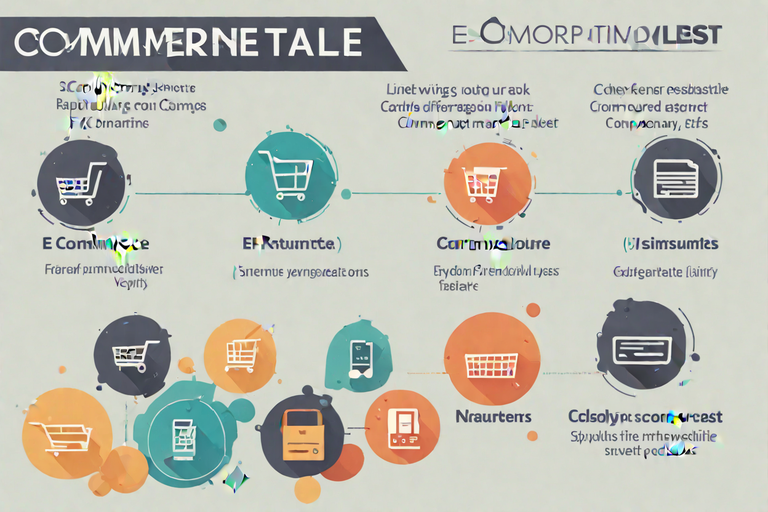Starting an online store can be a lucrative endeavor, but selecting the right e-commerce platform is a critical decision that can significantly impact the success of your business. With an abundance of e-commerce solutions available today, it’s essential to carefully evaluate your options and choose the platform that best aligns with your business goals and requirements. In this article, we’ll provide you with a comprehensive guide on how to choose the right e-commerce platform for your online store.
Understand Your Business Needs
Before diving into the selection process, it’s crucial to have a clear understanding of your business needs and objectives. Consider the following factors:
- Type of Products: What type of products will you be selling? Are they physical, digital, or a combination of both?
- Scale: Do you plan to start small and grow gradually, or do you have aggressive growth ambitions?
- Budget: How much are you willing to invest in your e-commerce platform, including development, maintenance, and marketing costs?
- Technical Expertise: What level of technical expertise do you or your team possess? Are you comfortable with coding and customization?
- Design and Branding: Do you have specific design and branding requirements for your online store?
- Payment Methods: Which payment methods do you plan to offer to your customers?
- Integration: Do you need to integrate with third-party tools and services, such as accounting software, email marketing, or shipping services?
- SEO and Marketing: What are your SEO and marketing strategies, and how do you plan to implement them through your e-commerce platform?
Evaluate Platform Types
E-commerce platforms fall into three main categories, each offering unique advantages and challenges. It’s essential to choose the one that best suits your business model:
- Open-Source E-commerce Platforms: Open-source platforms like WooCommerce (for WordPress) and Magento offer flexibility and complete control over your store’s customization. They are ideal for businesses with technical expertise or those seeking a highly tailored solution. However, they may require more maintenance and development work.
- SaaS (Software as a Service) E-commerce Platforms: SaaS platforms like Shopify, BigCommerce, and Wix provide a user-friendly and all-in-one solution. They handle hosting, security, and maintenance, making them an excellent choice for small to medium-sized businesses without technical skills. However, customization options can be limited.
- Headless E-commerce Platforms: Headless e-commerce solutions, like Moltin and Contentful, decouple the front-end and back-end of your online store. They offer maximum flexibility and scalability but require advanced technical knowledge to set up and maintain.
Consider Key Features
To make an informed decision, consider the following key features and functionalities that your e-commerce platform should offer:
- User-Friendly Interface: Ensure the platform is intuitive and easy to navigate for both you and your customers.
- Mobile Responsiveness: With the increasing use of mobile devices, your online store should be mobile-responsive for a seamless user experience.
- Payment Gateways: Check which payment gateways the platform supports and if they align with your business’s needs.
- Scalability: Evaluate whether the platform can handle your business’s growth and increased traffic.
- Security: Ensure the platform provides robust security measures to protect customer data and financial transactions.
- SEO Capabilities: Look for built-in SEO features or the ability to integrate with SEO tools for better search engine visibility.
- Third-Party Integrations: Consider the availability of integrations with tools and services your business relies on, such as email marketing, analytics, and shipping solutions.
- Customization: Assess the level of customization the platform allows, including themes, templates, and code access.
- Support and Resources: Ensure the platform provides reliable customer support and access to resources like documentation, tutorials, and a community.
- Cost: Calculate the total cost of ownership, including platform fees, transaction fees, hosting, and potential development costs.
Check for Performance and Speed
Website performance and speed are crucial for user experience and SEO. Run tests to evaluate the loading times and overall performance of the e-commerce platform under consideration. A slow website can deter customers and harm your search engine rankings.
Review User Feedback and Ratings
Look for user reviews and ratings for the e-commerce platforms you’re considering. This can provide valuable insights into the experiences of other businesses and help you make an informed decision.
Plan for Growth and Future Expansion
Think long-term. Your chosen e-commerce platform should accommodate your growth and expansion plans. This includes the ability to handle larger inventories, more customers, and increased traffic.
Make Use of Free Trials
Many e-commerce platforms offer free trials. Take advantage of these trials to test the platform’s features, usability, and performance. It’s an excellent way to get hands-on experience before committing to a platform.
Seek Professional Guidance
If you’re unsure about which e-commerce platform to choose, consider seeking advice from professionals or experts in the field. Consulting with an experienced web developer or e-commerce specialist can help you make an informed decision.
Conclusion
Choosing the right e-commerce platform for your online store is a critical decision that impacts your business’s success. By understanding your business needs, evaluating platform types, considering key features, assessing performance and speed, and reviewing user feedback, you can make an informed choice that aligns with your objectives.
Remember that your e-commerce platform should not only meet your current requirements but also accommodate future growth and expansion. With the right choice, you’ll have a solid foundation for your online store’s success and a platform that supports your business every step of the way.




